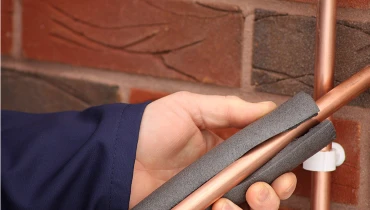Schedule a Plumber This Wednesday to Get 50$ OFF
Schedule a Plumber This Wednesday to Get 50$ OFF

Outdoor water pipes are exposed to the elements and can be vulnerable to extreme temperatures, making them susceptible to freezing in cold weather. A burst pipe can lead to extensive damage and costly repairs, often necessitating the assistance of a plumber or a plumbing service for pipe repair or even repiping. To avoid such scenarios, it's crucial to insulate outdoor water pipes effectively.
Insulating outdoor water pipes serves two essential purposes:
Insulating outdoor water pipes is a preventive measure that can save you from costly plumbing emergencies and enhance the energy efficiency of your water system. Burst pipes due to freezing can lead to extensive water damage, necessitating the services of a plumber for pipe repair or repiping. Proper insulation ensures that your water supply remains uninterrupted, even in the harshest weather conditions. If you're unsure about the insulation process or want to ensure your entire plumbing system is prepared for winter, it's advisable to consult Mr. Rooter Plumbing. They can inspect your plumbing, identify vulnerable areas, and provide expert guidance on insulation and other protective measures, ultimately safeguarding your home from the risks associated with outdoor water pipes in cold weather.
An old shower can become a daily source of frustration instead of comfort. Cracked tiles, inconsistent water pressure, dripping fixtures, and dated finishes may leave you wondering whether repair is…
A toilet is one of the most frequently used fixtures in your home, yet a small crack in the bowl or tank can easily be overlooked. Hairline fractures may not…
A peaceful home is built on small comforts—soft lighting, cozy spaces, and plumbing that works quietly in the background. When a faucet starts dripping, squealing, or banging, it quickly becomes…